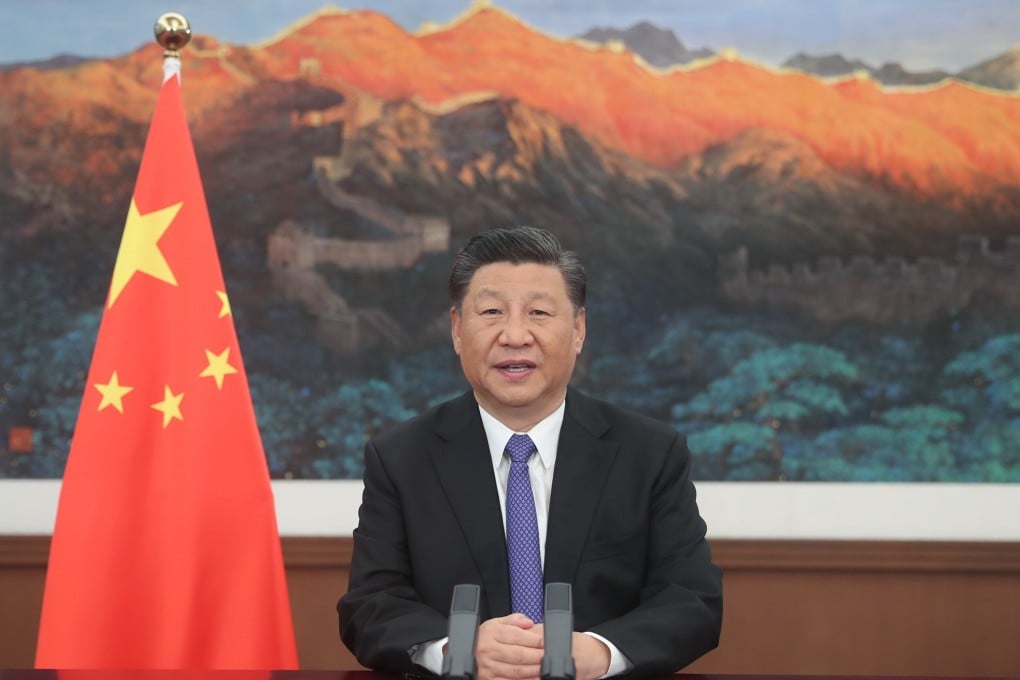Advertisement
Xi Jinping uses annual conference of infrastructure bank to spell out China’s multilateral and global ambitions
- China’s president calls for efforts to make the Asian Infrastructure Investment Bank ‘a new type of development platform’
- The bank set up a coronavirus relief project to help members cope with the pandemic
Reading Time:2 minutes
Why you can trust SCMP

China reiterated its commitment to multilateralism and global ambition by supporting the Asian Infrastructure Investment Bank, the Beijing-headquartered regional development bank which rivals the US-led World Bank and Japan-led Asian Development Bank.
Chinese President Xi Jinping called for efforts to make the AIIB “a new type of multilateral development bank”, “a new type of development platform” and “a new paradigm of multilateral cooperation”.
He addressed the opening ceremony of the fifth annual conference of the bank in Beijing on Tuesday. The two-day conference is being held virtually because of the Covid-19 pandemic.
Xi’s remarks came at a time when China and the US are locked in all-out confrontations which many worry are edging towards a new cold war. Beijing is also under a persisting global backlash to its assertive diplomacy related to the Covid-19 pandemic and the national security law in Hong Kong, while Washington is pressuring its allies to form an anti-China alliance.
Advertisement
“China has always supported and practised multilateralism and committed to development in joint efforts with all other countries in open, cooperative and win-win spirits,” Xi said.
He said “a more inclusive global governance, a more effective multilateral governance and a more active regional cooperation” were needed to address crises and challenges during economic globalisation.
Jin Liqun, the bank’s incumbent president, was re-elected as the bank’s president and will start a second five-year term in January. He was the only nominee announced in May.
Advertisement
Select Voice
Choose your listening speed
Get through articles 2x faster
1.25x
250 WPM
Slow
Average
Fast
1.25x